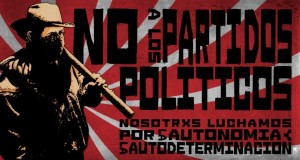
- [NY – 9 Dec] Activity in the context of the Mobilizations for the Life of Azqueltán
- [CDMX – 9 Dec] Political–cultural event for the freedom of Mumia Abu-Jamal and to organize the tribute to Carolina Saldaña
- [CDMX – 29 Nov] Marcha de solidaridad con Palestina
- [Oaxaca – 3 dic] La disputa del espacio en el centro de Oaxaca
- [CDMX – 25 nov] Presentación del informe 2025 sobre los impactos del Tren Maya
- [Milpa Alta – 22 nov] Foro: Enciendde tu chispa comunal ¡A la defensa del territorio!
- [CDMX – 29 nov] Resonancias del Caracol III. Organicemos la rabia de Chiapas a Palestina
- [CDMX – 21 nov] Fandango por la solidaridad con los pueblos originarios de la Sierra Norte de Veracruz
- [CDMX – 29 nov] Marcha en solidaridad con Palestina
- [CDMX – 17 nov] INVITACIÓN A LA MESA REDONDA: A 42 de la Fundación del EZLN, la lucha Zapatista tiene «Vigencia, Autonomía y Resistencia, frente a la Tormenta”



